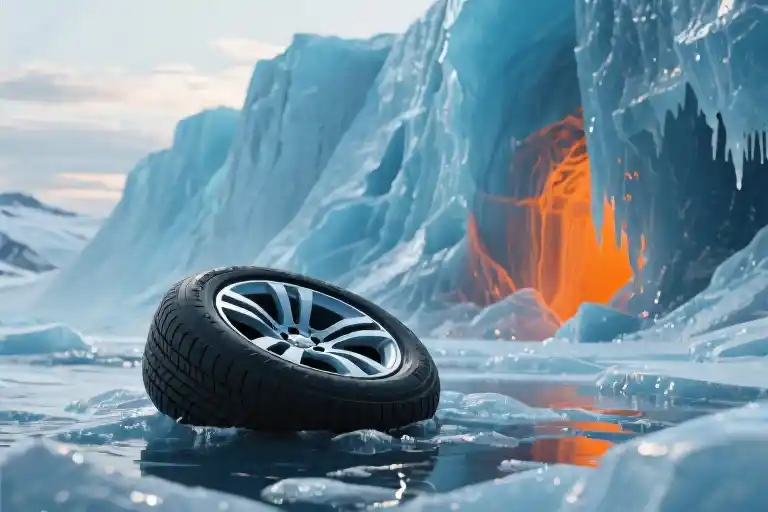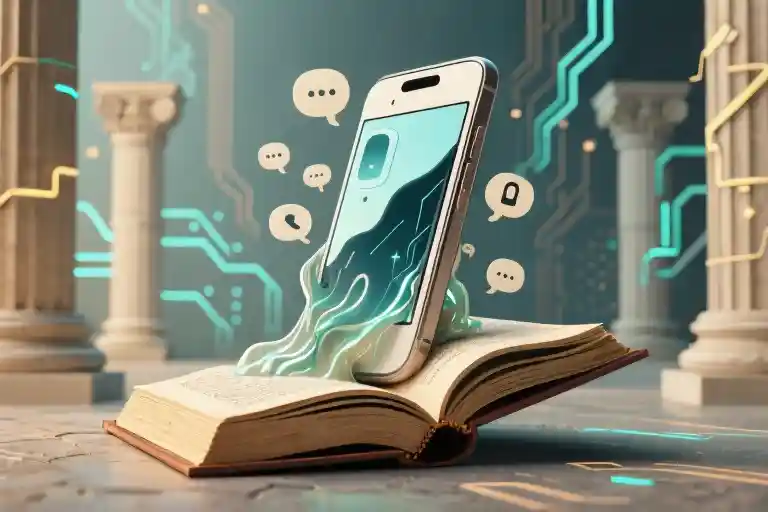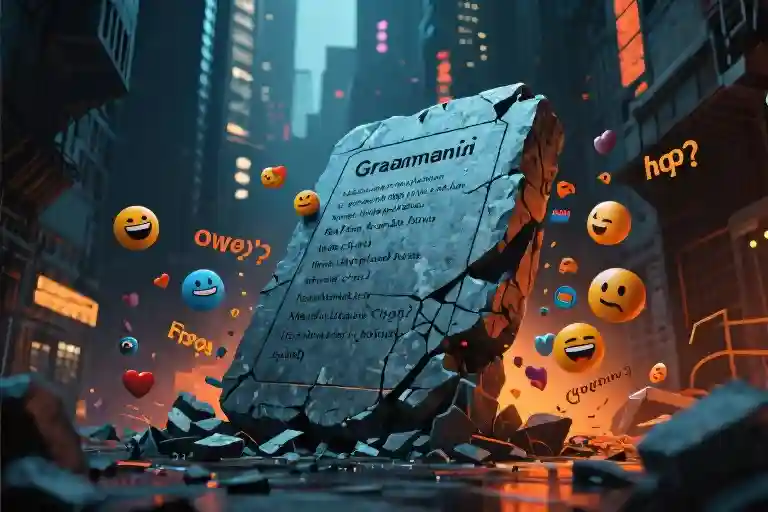At 7 AM, I’m plugging in my Prius while grumbling about tire rotations, just as the morning news flashes images of melting glaciers. The irony isn’t lost on me—it’s a textbook case of modern priorities gone haywire. This isn’t just another day; it’s a diagnostic report on how we’ve collectively misplaced our concerns, obsessing over trivialities while existential threats loom.
Take the Prius, my so-called “hippy death trap.” What Does: I’ll debate its carbon footprint with anyone within earshot. What Doesn’t: The fact that my neighbor owns three homes locked in at 2% mortgage rates, yet lectures me about “financial responsibility” as housing prices skyrocket. The dissonance is almost artistic—like watching someone rearrange deck chairs on the Titanic while complaining about the upholstery.
Then there’s the toaster. What Does: I’ll unplug it religiously to save $0.02 a year in phantom energy. What Doesn’t: Rising sea levels that could displace millions. “Maybe my Cape Cod cottage will become beachfront,” jokes a friend, as if climate change were a real estate opportunity rather than a crisis. The laughter hangs awkwardly, like the unplugged toaster cord nobody bothers to reconnect.
These contradictions aren’t just quirks; they’re symptoms. What Does: My dermatologist-approved 12-step skincare routine. What Doesn’t: The carcinogens in my “organic” face cream that I never bothered to research. We’ve become connoisseurs of micro-concerns and amnesiacs about macro-threats, treating life like a choose-your-own-adventure book where we only read the footnotes.
Somewhere between rotating tires and ignoring broken toes, between lamenting the disappearance of gravy and shrugging at global warming, we’ve lost the plot. This isn’t about guilt—it’s about noticing. Because the first step to fixing misplaced priorities is seeing them for what they are: not just absurd, but dangerously habitual.
The Absurdity of Everyday Anxieties
We live in a world where our worries have somehow gotten their priorities completely backwards. The modern human brain has developed this fascinating ability to hyper-focus on microscopic inconveniences while completely ignoring existential threats. It’s like we’re all walking around with perfectly rotated tires on a burning planet.
What Does: Whether or not I’ve had my tires rotated in the last two years. The dealership keeps sending reminders, and I’ve developed genuine anxiety about uneven tread wear. I can recite the recommended rotation patterns like poetry: front-to-back, cross-rotation, directional tires…
What Doesn’t: His toe, which is permanently frozen at a 45-degree angle after that hiking incident three years ago. “It’s fine,” he says while limping through the grocery store, “I’ve gotten used to the look of it.” The doctor’s appointment remains unscheduled between tire rotation reminders and checking the air pressure.
This peculiar inversion of concerns extends to our environmental contradictions. We’ve become experts at performing eco-consciousness while ignoring actual ecological collapse.
What Does: Driving my “hippy death trap” Prius with religious fervor, feeling morally superior at every stoplight. The hybrid battery health report gets more attention than my actual health report.
What Doesn’t: The toaster that’s been permanently plugged in for seven years straight. “It’s too much trouble to unplug it every time,” we say while watching news footage of wildfires. That little red standby light might as well be counting down to doomsday, but at least our bread gets evenly browned.
Our relationship with domestic appliances reveals this cognitive dissonance in its purest form. We’ll meticulously research countertop materials but remain blissfully unaware that our beachfront property calculations now need to account for rising sea levels.
What Does: The 47-step process of choosing the perfect avocado at Whole Foods – checking firmness, stem color, and that mysterious “avocado feel” that food bloggers swear by.
What Doesn’t: The fact that our entire agricultural system is teetering on the brink of climate catastrophe. “Maybe the rising temperatures will finally help me grow decent tomatoes,” we joke while scrolling through Zillow listings for higher-elevation properties.
These absurd priorities create a funhouse mirror version of adulthood where we’ve mastered the appearance of responsibility while dodging its substance. We’ll remember our reusable shopping bags but forget that we haven’t had a physical exam since college. The modern checklist has become a masterpiece of misplacement – we’re acing the extra credit while failing the final exam of basic survival.
Perhaps the most telling symptom is how we’ve medicalized life admin while ignoring actual medical needs. The calendar notifications for car maintenance outnumber doctor’s appointments ten to one. We can tell you the exact mileage for your next oil change but draw a blank when asked about your last blood pressure reading. The check engine light gets immediate attention; the check human light gets postponed indefinitely.
This isn’t just about forgetfulness – it’s about comfort. Rotating tires gives us the illusion of control in a world that feels increasingly chaotic. The satisfying click of resetting the maintenance reminder provides momentary relief from larger, more frightening uncertainties. We’ve created a safety net of small, manageable worries to avoid staring into the abyss of real ones.
Yet occasionally, reality breaks through the bubble wrap of our manufactured concerns. Standing in the garage staring at perfectly rotated tires while the weather app shows another record-breaking heatwave, even the most dedicated small-worry enthusiast might pause. For a brief moment, we glimpse the absurdity of our inverted priorities – before the phone dings with another reminder about that expiring coupon for an oil change.
When Privilege Distorts Reality
We’ve all encountered that person at dinner parties who casually drops their mortgage rates into conversation like confetti. “What Does: Three homes locked in at 2% interest” floats across the artisanal cheese board, while “What Doesn’t: Your coworker’s 8% FHA loan application getting rejected” lingers unspoken in the air between sips of natural wine. This isn’t just about wealth—it’s about how financial privilege rewires our perception of universal struggles.
The Property Paradox
Consider the modern homeowner’s cognitive dissonance: “What Does: Endless renovations on the Hamptons cottage” versus “What Doesn’t: Recognizing that median rent now consumes 42% of average incomes” (U.S. Census data confirms this brutal math). The punchline? Many privileged individuals genuinely believe millennials could afford homes if they just “stopped buying avocado toast”—a joke that stopped being funny around the same time climate change did.
The Maintenance Mirage
There’s peculiar poetry in watching someone fret over their Tesla’s tire rotation schedule (“What Does: My quarterly service appointments at the dealership”) while dismissing universal healthcare (“What Doesn’t: His untreated plantar fasciitis because ‘insurance is a scam’”). This selective attention spans beyond vehicles—notice how “What Does: Complaining about disappearing craftsmanship” often pairs with “What Doesn’t: His corporate job outsourcing skilled labor overseas”.
Skin-Deep Priorities
Nothing encapsulates misplaced values quite like the man bemoaning the lack of gravy on menus (“What Does: Menus without proper sauces”) while ignoring his dermatological SOS signals (“What Doesn’t: The snowstorm of dead skin cells cascading from his neglected epidermis”). It’s a living metaphor for how privilege allows disconnecting from bodily realities—until the spa day gets canceled.
These contrasts reveal an uncomfortable truth about modern life contradictions: our brains automatically assign importance based on personal inconvenience rather than collective impact. The real satire? Most readers will chuckle at these examples while checking their own blind spots—like whether they’ve recycled today’s Amazon packaging (“What Does”) or just contributed to the Great Pacific Garbage Patch (“What Doesn’t”).
Cultural Priorities: A Study in Modern Irony
We live in an age where our cultural consumption has become both a status symbol and a blindfold. The films we haven’t seen speak volumes about our selective awareness, just as the disappearing gravy from restaurant menus tells a peculiar story about contemporary culinary priorities.
What Does: The fact that I haven’t seen Lawrence of Arabia. “Try watching something other than Little Women for once.”
What Doesn’t: Global warming. “We’ll all just move to Canada, where I also have a house, ha ha. Oh, don’t be so offended.”
The irony here is thicker than the plot of David Lean’s epic. We’ll passionately debate the merits of 4K restorations of classic films while dismissing climate migration as someone else’s problem – preferably someone living far from our vacation properties. This cognitive dissonance between cultural literacy and planetary literacy reveals how modern privilege operates: we curate our intellectual experiences while outsourcing our existential crises.
What Does: The disappearance of gravy from menus
What Doesn’t: The 30 varieties of artisanal olive oil at Whole Foods
Here lies the paradox of abundance. As traditional comfort foods vanish from public dining, we’re presented with increasingly microscopic choices about substitutes. The modern gourmet can distinguish between Ligurian and Andalusian olive oils while forgetting what proper Yorkshire pudding tastes like. Our palates have become globalized at the expense of localized culinary wisdom – a perfect metaphor for how modern life sacrifices substance for selection.
This cultural whiplash manifests in other subtle ways:
- Streaming Guilt vs. Climate Action: We feel cultural FOMO about unwatched prestige TV while ignoring unwatched climate reports
- Vinyl Revival vs. Disposable Fashion: The careful curation of record collections contrasts sharply with fast-fashion waste
- Bookstagram Aesthetics vs. Local Libraries: Perfectly staged reading nooks get more attention than underfunded public literacy programs
The common thread? We’ve become connoisseurs of consumption rather than custodians of culture. The original Lawrence of Arabia print might be meticulously preserved while actual Arabian ecosystems deteriorate. Menus celebrate heirloom tomatoes while industrial agriculture destroys topsoil. These aren’t just first world problems – they’re symptoms of a civilization that values the representation of things over the things themselves.
Perhaps the most telling contrast:
What Does: Endless debates about “the death of cinema”
What Doesn’t: The fact that cinema’s biggest threat might be coastal theater flooding
Our cultural anxieties have become curiously decoupled from physical realities. We’ll mourn the loss of 35mm projection while our coastal arthouse cinemas literally sink into rising seas. The punchline? Nobody’s making a documentary about this particular plot twist.
In the end, these cultural contradictions reveal less about our tastes than about our capacity for self-deception. The test isn’t whether you can discuss Ozu’s framing techniques, but whether you can frame today’s cultural consumption within broader ecological and ethical contexts. After all, future archaeologists won’t judge us by our Criterion Collection – they’ll study why we collected beautifully restored films of burning oil fields while ignoring the actual burning oil fields outside our windows.
The Final Irony
What Doesn’t: The 4 minutes you just spent reading this article.
What Does: The 45-minute TikTok rabbit hole you’re about to dive into next.
We’ve laughed together at these modern contradictions – the meticulous tire rotations while ignoring chronic pain, the eco-conscious Prius parked outside a third vacation home, the artisan toast obsession as glaciers disappear. But here’s the uncomfortable truth: recognizing these ironies changes nothing unless we disrupt the cycle.
Your phone screen is still glowing. The algorithm already queued up another dozen clips about “life hacks” and “self-care routines.” Meanwhile:
- Arctic permafrost keeps melting at record speeds
- That unpaid medical bill still sits in your drawer
- 1,774 emails about climate emergencies remain unread
This isn’t about guilt. It’s about that fleeting moment when absurdity becomes clarity – when we realize “wait, why AM I researching $200 serums instead of checking my mole?”
So here’s your assignment: Lock this device. Right now. For the next:
- 5 minutes: Watch real birds instead of birdwatching TikToks
- 30 minutes: Call someone who actually needs conversation
- 24 hours: Track how many “urgent” problems are just manufactured anxieties
The contradictions won’t disappear. But with practice, you’ll start spotting when “What Does” and “What Doesn’t” stop being funny… and start being choices.





